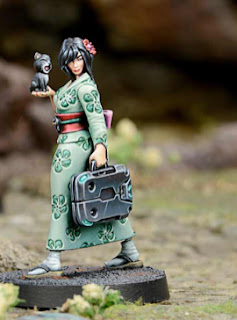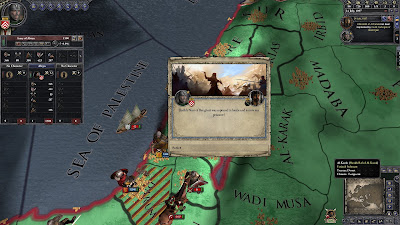 |
| Map of Medieval Europe, Asia and Africa from the game, Medieval 2:Total War |
I often heard from my friends that Christianity is violent. They point out that during the Crusades, the Christians rode into the Middle East unprovoked and slaughtered both Jews and Muslims. This seems to concur with Richard Dawkins's (2006) assertion that Christianity is a violent religion For instance, King Richard I mercilessly executed 2,700 Muslim soldiers captured at Arce in 1191.
For this post, I will be focusing on the Crusades of the Middle East, and not other campaigns, such as the Northern Crusades and the Reconquista.
What are the Crusades?
The Crusades were a series of Christian military expeditions to the Middle East that started in 1095 to 1272. These soldiers were blessed by the Pope and aimed to return capture the Middle East for Christianity.
How do you justify such violence?
I don't. The Crusades was a horrific event that happened and etched the horror of Christianity in the minds of its opponents.
I do not deny that the Crusaders did in their zeal and greed led to the massacre the residents of Jerusalem and the sack of Constantinople.
Misconceptions of the Crusades
A) The Crusades were an unprovoked attack on the Middle Easterns
In 1095, much of the Byzantium Empire (aka the Eastern Roman Empire) had fallen to the Muslim Arabs. Looking at the map, this included cities like Nicaea, Antioch, Arce, Alexandria, Damascus and of course, most importantly, Jerusalem. Facing anniliation, the Byzantium Emperor Alexois I appealed to Pope Urban II to aid him in the interest of Christian brotherhood (The Byzantines were Orthodox Christians, while the Pope was the head of the Roman Catholic Church). This kicked off the First Crusade, where Pope Urban II's rousing speech (and promises of instant paradise for those who perished in the expedition) convinced a force of 35,000 men to embarked on this venture.
Furthermore, Western Europe was not untouched by the Arab aggression. In fact, Arab pirates had threatened Rome (where the Pope resides) before. To the Western Europeans, the Arab attackers were not far away, but near.
In other words, the Crusades were a response to the aggression against Christians in the once-Byzantium lands.
 |
| French Medieval armour, taken at the French Imperial War Museum in 2011 |
B) The Crusades was a period of constant warfare
The Middle Eastern Crusades lasted from 1095- 1272. This seems to suggest that the Christian soldiers were actively attacking the Holy Lands for about 200 years. However, about 90% of those years were spent organising and travelling. For instance, the Third Crusade (the longest campaign) lasted for six years (1187 to 1192), but the actual fighting in the Middle East only started in 1189 (with the Siege of Arce).
C) The Crusader Kingdoms mistreated the non-Christians
Another criticism is that the Crusader Kingdoms that were established abused and mistreated the non-Christians inhabitants. The Crusaders did segreate their community from Jews, Muslims and Eastern Christians (Prawer, 1981). While slavery of non-Christians was allowed, Crusaders had to free slaves who chose to convert to Roman Catholicism.
However, it has to be stated that the Crusaders generally allowed a degree of autonomy among the non-Christian inhabitants. Ibn Jubayr (an Arab Muslim chronicler) complained
"Many Muslims are sorely tempted to settle here when they see the far from comfortable conditions in which their brethren live in the districts under Muslim rule. Unfortunately for the Muslims, they have always reason for complaint about the injustices of their chiefs in the lands governed by their coreligionists, whereas they can have nothing but praise for the conduct of the Franks [Crusaders], whose justice they can always rely on." (Pernoud, 1963)
In fact, the Crusaders relations to the non-Christian inhabitants was not regarded as especially special for that time period. It was "neither friendly, nor hostile" (Ellenblum, 2006)
Conclusion
The Crusades were an example of the misuse of Christianity. In fact any idea can be manipulated to violence. Even the belief in no God (i.e. atheism) had led to the despotic regimes of Stalin, Mao and Pol Pot (Mcgrath , 2004).
To pretend that the Crusaders were particularly worse than their contemporaries is misleading.
References
Dawkins, R. (2006) The God Delusion
Ellenblum, R. (1998) Frankish Rural Settlement in the Latin Kingdom of Jerusalem
Mcgrath, A. (2004) Twilight of Atheism
Pernoud, R. (1963) The Crusaders
Prawer, J. (1981) Crusader Institutions
For further readings
Aren't Christians responsible for most wars?





